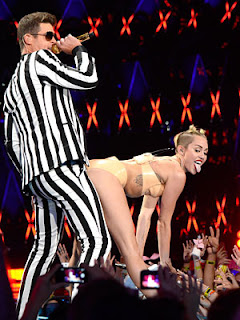 |
| Friends. One wrote about what it meant, one wrote about it between elves and dwarves. |
Here’s
the perspective: in August a friend of mine died. Sadly, this was not the
first, and the unique nature of this particular friendship—I was close to sixty
years this man’s junior—meant that it wasn’t totally unexpected. But a friend
had died, and as is the nature of such times, another friend did exactly the
right thing at exactly the right time. He sent me a quote from C. S. Lewis’s The Four Loaves on the nature of
friendship.
It was what I needed and
that friend knew because that friend knows me.
Since that day in August, I’ve
been struggling hard with the definition of friendship: what it means to me,
how I need it, how it affects me. The loss of one friend and the celebration of
another is a complex collection of emotions to unbundle.
I am blessed with some great
friends. Not many, but enough. I can say that although I had friends growing
up, I was nearly two decades old before I learned what friendship is in its
purest form.
To define friendship—that special
and intimate bond that Lewis defines as strong as but different from the union
with a spouse—is to fall unavoidably into cliché. A friend is someone who loves
you for who you are, who you can be yourself with. A friend knows you better
than you know yourself. A friend loves you in spite of and because of your
faults.
As I have aged, I have learned
to appreciate these Hallmark qualities, because I have so few of these
friendships, these of the true, pure variety.
There’s a group of us, all from
Southwest Saskatchewan though none of us still resides there, who manage to get
together in some form about once per year. One of these sent me the message
this August. Around these magnificent fellas I feel a lightness because we
truly can and do say anything and it is accepted. Gently mocked, perhaps, but
never judged. Better yet, heard. Even
if it is disagreed with, each man is respected be the rest of the group. There
is a kind of looking—really looking—at someone using both eyes that I love.
With true friends, we listen—really listen—with both ears.
That group is special because of
its equality, its open love between several equals. It’s what each individual
brings to the group that makes it the greater whole, and that is a beautiful
thing.
There are a few others of these
best friendships, many that I see only once in a very long while as well. I’m
lucky enough to even have a handful nearby.
But I’ve noticed that I’ve
started to have trouble making that
type of friend. I don’t think I’ve changed much, but of course, marriage
changes us, and parenthood. In the best marriages—and I’m in the best marriage—some
of our friendship needs are fulfilled.
Though not entirely. Here I have
to agree with Lewis: a marriage will never completely provide what a friendship
does. Lewis—in his 1950s, Old World academic, overly-Christian sorta way—said that
love between men (he was from a time where you never quibbled about pronouns)
is a different thing than the love between a man and a woman (he was also from
a time where what I’ve been writing here would not have been read with overt
homosexual double entendres to the dispassionate or cynical. Well, that may be a lie . . . ). Although I don’t
agree with where he was coming from, I agree with where he went. Real
friendship fulfils in way that nothing else can. No other relationship
compares.
It was not until I was nearly
twenty that I understood this. Until then, I had never had friend tell me he loved
me, or that I loved him, or her. I can’t imagine the void I would have now
without such love, and I am saddened to know that there are many people whose
greatest foundations are nothing but superficial.
August has, for whatever reason,
caused me to question and wonder about who my friends are, or better, why they
are friends with me specifically. What special qualities in me and in them have
created this unique thing that we live for? Some things are better left existing
unexamined, yet some remain the cause for study and celebration.
This, then, is the nature of
true friendship: it causes us to celebrate the life of another and the life of
our self, and to further over-joy in what is created by the bond.











.jpg)
